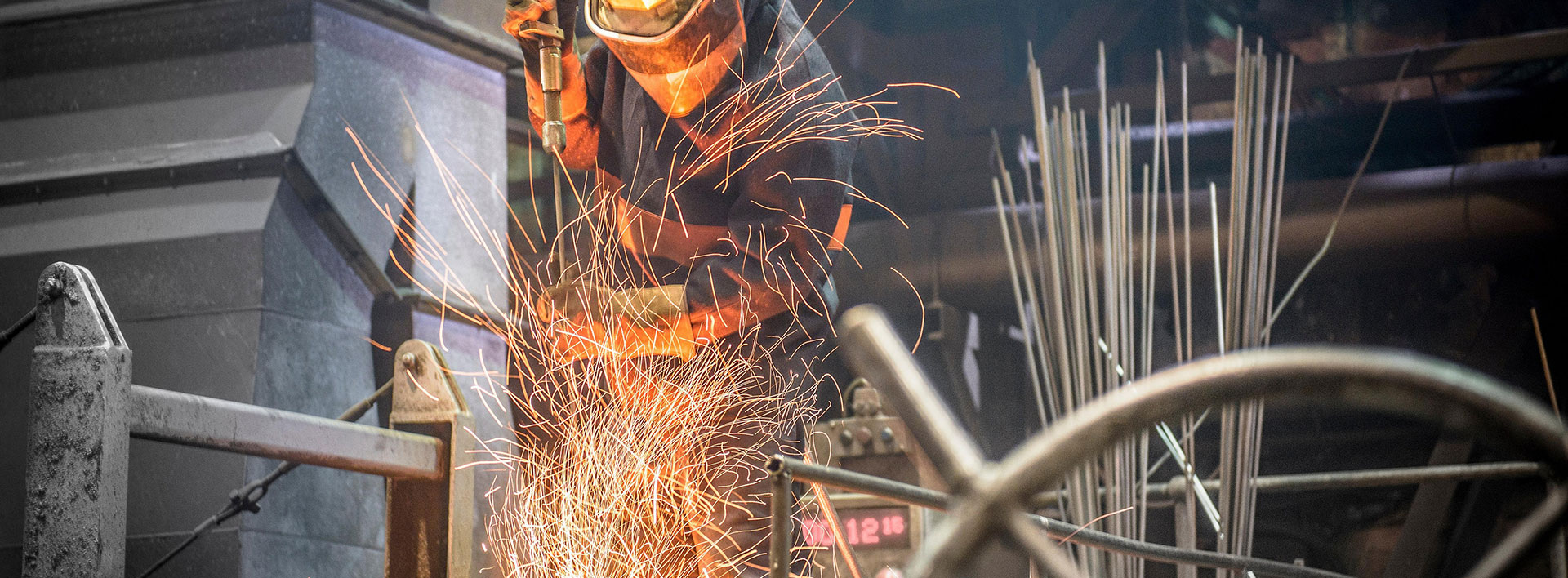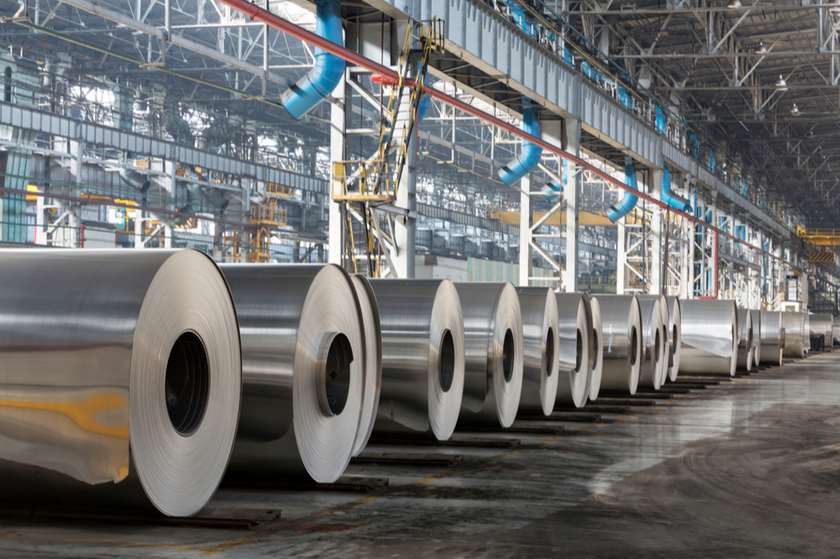




EN 1090 standard, designed for steel and aluminum structural elements, came into force in 2014. As of this date, the steel and aluminum structural components to be sent to the European Union countries must comply with this standard and bear the CE mark.

EN 1090, a European standard, consists of three standards:
EN 1090-1: Conformity assessment requirements for structural components (CE mark). This standard outlines production control requirements and is based on the 2. and 3. describes the requirements for conformity assessment. The annex to the standard contains instructions on exactly what information should be specified and how to mark the products with CE.
EN 1090-2: Technical requirements for steel structural elements. This standard covers the technical requirements for steel structures.
EN 1090-3: Technical requirements for aluminum components. This standard covers the technical requirements for aluminum structures.
If steel and aluminum structural elements are to be marketed in European Union countries, or if these products fall within the scope of a harmonized European standard or European Technical Assessment, these products must be affixed with the CE mark.
If the manufacturers use the CE marking according to EN 1090 standards, the EN 1090-1 Certificate and EN 1090-2 or EN 1090-3 Certificate are required depending on the materials on which the products are made. These are standards that clearly establish compliance requirements. Therefore, companies have to refer to this set of standards in order to ensure that production control works are appropriate.
With the publication of the EN 1090 series of standards, all companies producing such construction materials are required to receive certification. Companies that do not have EN 1090 Certificate become responsible. Insurance products avoid paying compensation if products of a non-certified company are used. For this reason, for example, steel construction structures must be given to a company with EN 1090 certificate.
Companies operating in the construction sector are now using methods based on the technical requirements of this set of standards and are always trying to be qualified in the selection of welders and welding.
The explanations above clearly show that it is a necessity for the enterprises producing steel and aluminum structural elements to produce in accordance with EN 1090 standards series, to obtain certificates in accordance with these standard principles and to attach CE marking on their products.
In this sector, in order to offer products to the markets and to compete with their competitors, they must be certified in accordance with EN 1090 standards. These documents provide advantages to manufacturers producing structural components made of steel or aluminum. The EN 1090 range of standards is essential not only to manufacturers, but also to contractors, engineers, customers and all other organizations working with these components.
In this regard, companies producing steel or aluminum structural components can easily access new markets thanks to the EN 1090-1 Certificate and the CE mark. These standards and the CE marking system are prerequisites for trade with European Union countries. The EN 1090 Certificate and the CE mark prove that the products meet the requirements of the Construction Products Directive in force in the European Union countries.
The EN 1090 range of standards is a harmonized European standard and forms the basis of the CE marking required for structural components under the Construction Materials Directive 305 / 2011 / EU. The EN 1090 range of standards applies to the design and manufacture of structural components made of steel and aluminum.
The main purpose of these standards is to ensure that the safety performance of the structures is at the desired level. This set of standards covers steel structures and aluminum construction applications and is divided into three main parts: conformity assessments of bearing elements, technical requirements for steel structures and technical requirements for aluminum structures.
The Turkish Standards Institute (TSE) published this series of standards under the following headings:
TS EN 1090-1 Steel and aluminum construction applications - Part 1: Conformity assessment requirements of bearing elements
TS EN 1090-2 Steel and aluminum construction applications - Part 2: Technical requirements for steel structures
TS EN 1090-3 Steel and aluminum construction applications - Part 3: Technical requirements for aluminum structures
The Building Materials Directive No. 305 / 2011 / EU sets harmonized standards in order to standardize the quality control of building materials production, to ensure free trade and to ensure the use of qualified products within the European Union. The EN 1090 range of standards is designed in this way.
The directive stipulates that all enterprises wishing to sell construction products in the European Union markets must certify factory production controls. Companies producing hot rolled steel products or aluminum components are also required to certify factory production controls in accordance with EN 1090 standards. They are also required to put CE marking on the products within the framework of this standard.
In this way, manufacturers have the opportunity to expand their markets to the European Union countries, fulfill all national and international legal obligations and fulfill all the prerequisites for putting CE marking on the products.
In short, EN 305 certification has become a necessity in the framework of the Construction Materials Directive No. 2011 / 1090 / EU published in the European Union countries. The assessment and certification of steel and aluminum construction materials companies such as steel structures, carriers, towers and the like are carried out by accredited institutions. Authorized bodies do not only provide 1090 certification and CE marking services, but also TS EN 15088 Aluminum and aluminum alloys - Structural products for construction work - Technical requirements for inspection and delivery, TS EN 15085 Railway applications - Welding of railway vehicles and components and TS EN ISO 3834 provides the evaluation services in accordance with the quality requirements standards for the melting welding of metallic materials.
Steel and aluminum structures are becoming more common day by day and the importance of structural metal products is increasing. In the meantime, within the framework of harmonization studies with the European Union, many legal regulations, practices and standards are adapted to the conditions of our country. Steel constructions produced according to EN 1090-2 standards and aluminum constructions manufactured according to EN 1090-3 standards are subject to conformity assessment studies and certified according to EN 1090-1 standard.
During these works, assembly and welding controls, inspection and inspection works including construction site are carried out in construction projects determined by special specifications. Especially thanks to these surveillance systems which are preferred in industrial facilities, buildings, shopping malls and power plants, a complete trust network is established between the parties.
Within the scope of certification, companies should first have a factory production control system and operate this system. Subsequently, they must have the initial type tests included in the annex to the EN1090-1 standard and declare the results. Certification works can only be carried out with the approval of these two situations.
First, it is determined whether the organization meets the mandatory requirements of the standard and whether to proceed to the next stage.
It is checked whether necessary procedures and audits have been developed and your institution's readiness for evaluation is reviewed.
The findings that arise in the first two stages are evaluated and after all corrective actions are reviewed, document preparation is started.
To get an appointment, to get more detailed information or to request an evaluation, you can ask us to fill in our form and reach you.